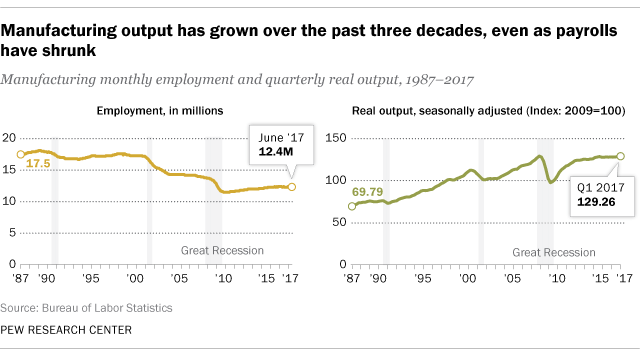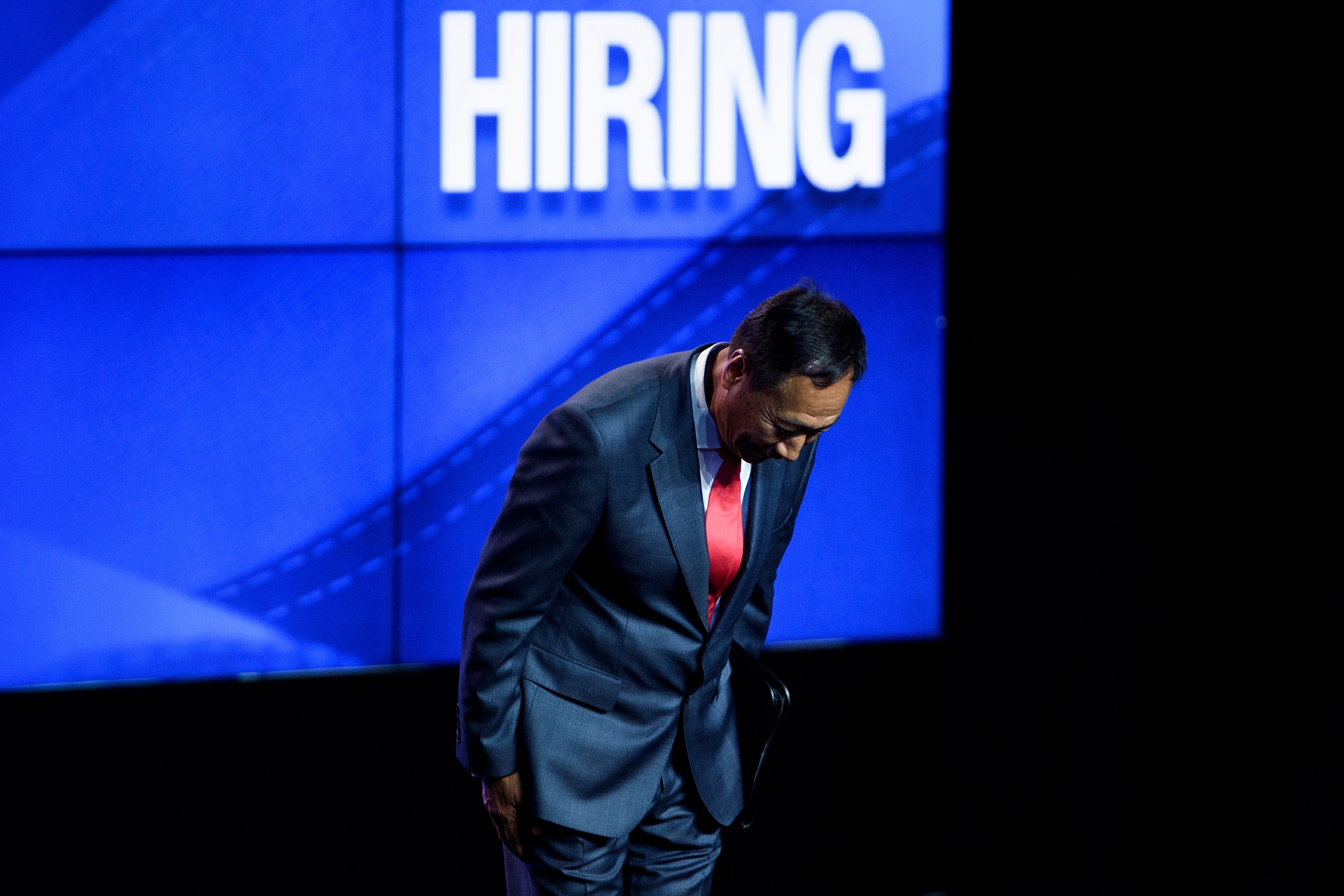Then why else has production gone up but persons emplolyed in manufacturing has gone down? Magic?
Although manufacturing jobs have fallen in recent decades, improved productivity has kept manufacturing output rising – contrary to what many Americans believe.

www.pewresearch.org
Beef and homes are still markets. What do you expect?
Homelessness was a rarity? Where were you living? And what time frame? You're just tossing accusations out without any sort of basis for them. It should be noted that Reagan signed the Homeless Assistance act in the late 80's.
Our manufacturing is not being decimated as previously pointed out. Manufacturing output has increased almost 5-fold (adjusting for inflation) over the last 70 years. Where are you coming up with this stuff?
Yes, we are a service based economy. Out of the three (extractive, good producing, and service), we certainly are a service economy and that's easily found if you look somewhere beyond "AOC's Economics 101" book. I'm sorry that you feel it's ignorant, but based on your previous replies on this subject, it's not surprising. Advances in manufacturing have allowed greater productivity and efficiency with less workers. This means lower prices for consumers. Why is that a bad thing?
Also, know that service sector employment includes retail, financial services, digital services, real estate, hospitality, education, health, social work, computer services, recreation, media, communications, and electricity, gas and water supply, etc. and you don't think any of that is exportable? You're smoking crack. It's also a simple fact that the three types of economies are not independent of each other and there are services that rely on manufacturing. There wouldn't be mechnics if no ione built cars, right? On the flip side, there wouldn't be stadium construction jobs if there wasn't football, baseball, etc.
Wages have continaully, and evenly, increased over time so I'm not sure where you get the idea that Americans aren't or won't get paid. The idea they won't get paid enough because we don't manufacture is ridiculous. The entire reason we import more than we export (i.e. trade deficit) is solely because we have more expendable money. To put it simply, we have extra money, they have extra goods we choose to pay for. Everyone wins.
Let's assume what you say is true and Americans don't make enough money because we don't manufacture (ignoring the fact that manufacturing is a tiny portion of overall employment sectors), you're advocating moving manufacturing back here which means increased cost of manufacturing, thus increased cost of goods. Now, you're broke Americans are even more broke because they are buying the most expensive American made goods because some yahoo assumes that building things here equals global might.
You know why 80% of those tools say China? Because Americans want to spend less on tools so they buy the cheaper ones from China. Is this really that difficult for you? Fact is, we have a trade deficit, but that's not a bad thing. We give extra money for goods. It's akin to you being pissed off at the local Giant or Safeway because you bought more from they than they buy form you.







